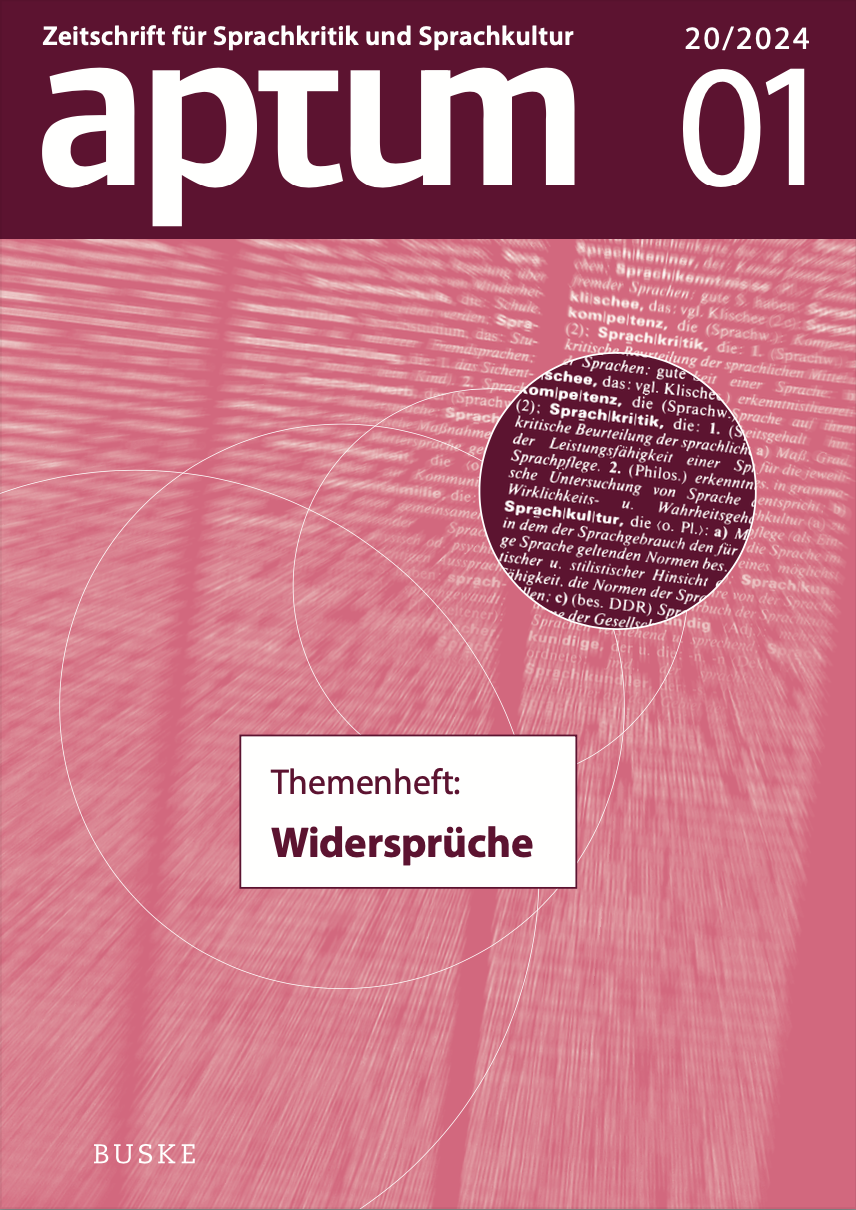
The aim of this article is to theoretically substantiate antonymy as a discourse-linguistic category and to analytically examine it. The central question here is how antonymic relations are grammatically constituted in discourse and what communicative functions they fulfill. Following this interest, the main empirical part of the paper presents a case study on antonymy in grammatical constructions consisting of modal verbs, negations and two-part adversative connectors. A central result of the study is that the discourse-grammatical constitution of antonymy entails different functions for political discursive communication. Against this background, we argue that the study of antonymy provides important insights for discursive conceptions of contradictions and therefore offers a rewarding interface for interdisciplinary collaboration between linguistics and Contradiction Studies.
In Aptum. Zeitschrift für Sprachkritik und Sprachkultur 20 (01), 41–70.
print
ISBN: 978-3-96769-433-8
DOI:
10.46771/9783967694345_3